Drug addiction vs. drug tolerance
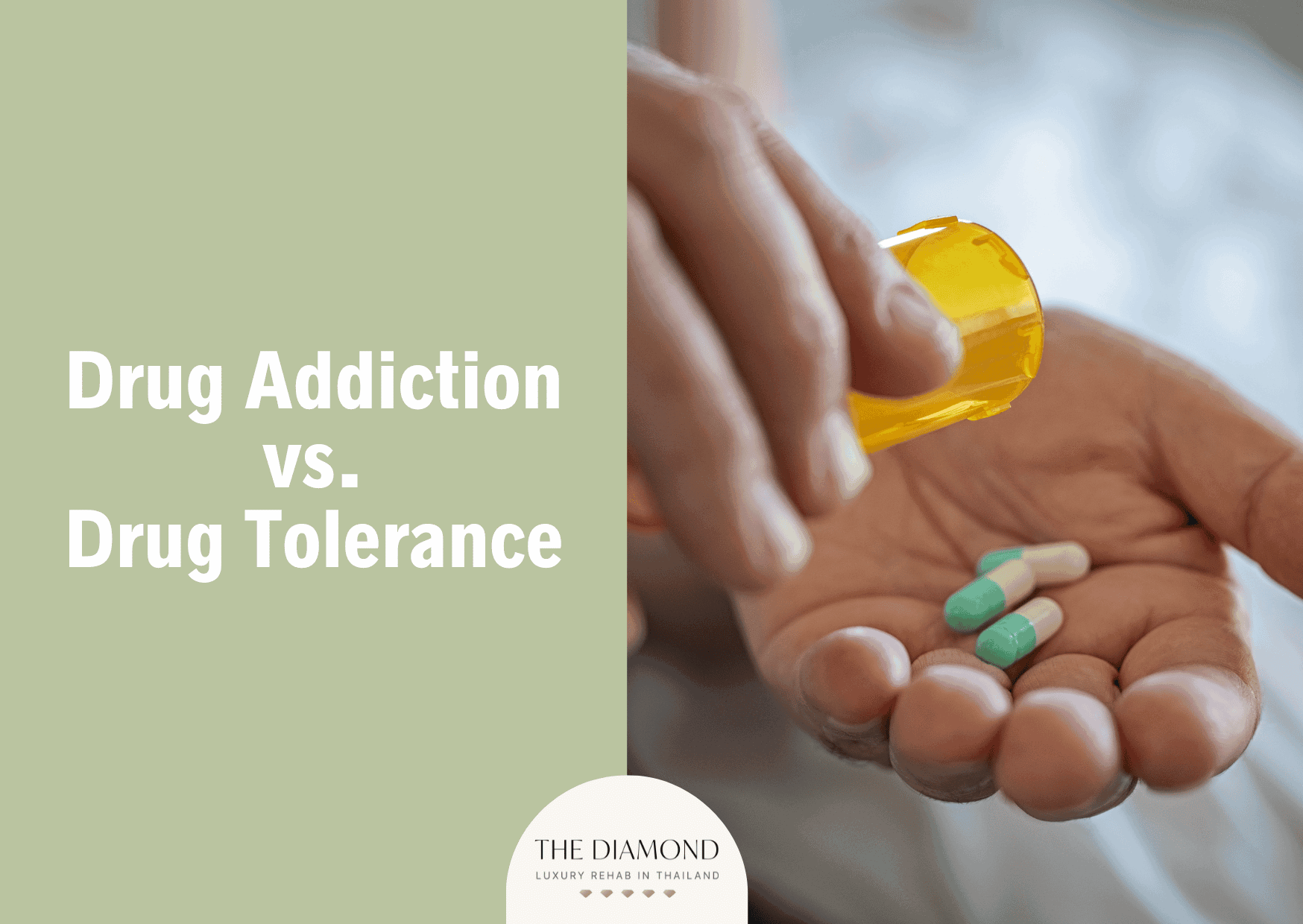
When dealing with issues of substance abuse, people often encounter the terms “tolerance” and “addiction.” These words, along with dependence on drugs, have been tossed around the topic so many times that the two have often been used interchangeably even though they are distinct.
Aside from the importance of using medically accurate terminology for medical conditions such as addictions, today’s medical professionals also assert the significance of carefully chosen language in substance use conversations.
Stigmatizing words can affect the afflicted person’s self-image and stand in the way of their recovery. Read on to learn more about the difference between drug addiction and drug tolerance, and how a better understanding of these terms can help predict treatment outcomes.
What is drug addiction?
Drug addiction is a chronic disease that impacts a person holistically, causing disruptions in the physical, mental, and behavioral aspects of one’s life. Otherwise known as substance use disorder, the complex disease involves substances of abuse such as illicit drugs, prescription medications, over-the-counter drugs, alcohol, and even nicotine.
Individuals who abuse these substances have no medical reasons for using them and only take them for recreational purposes, such as to obtain a high. Although addiction and tolerance both have negative effects on a person, addiction is not the same thing as what is tolerance to a drug. Addiction is more likely to have negative effects that can seriously harm the health of someone with a substance use disorder through associated disease risks, and can even result in death.
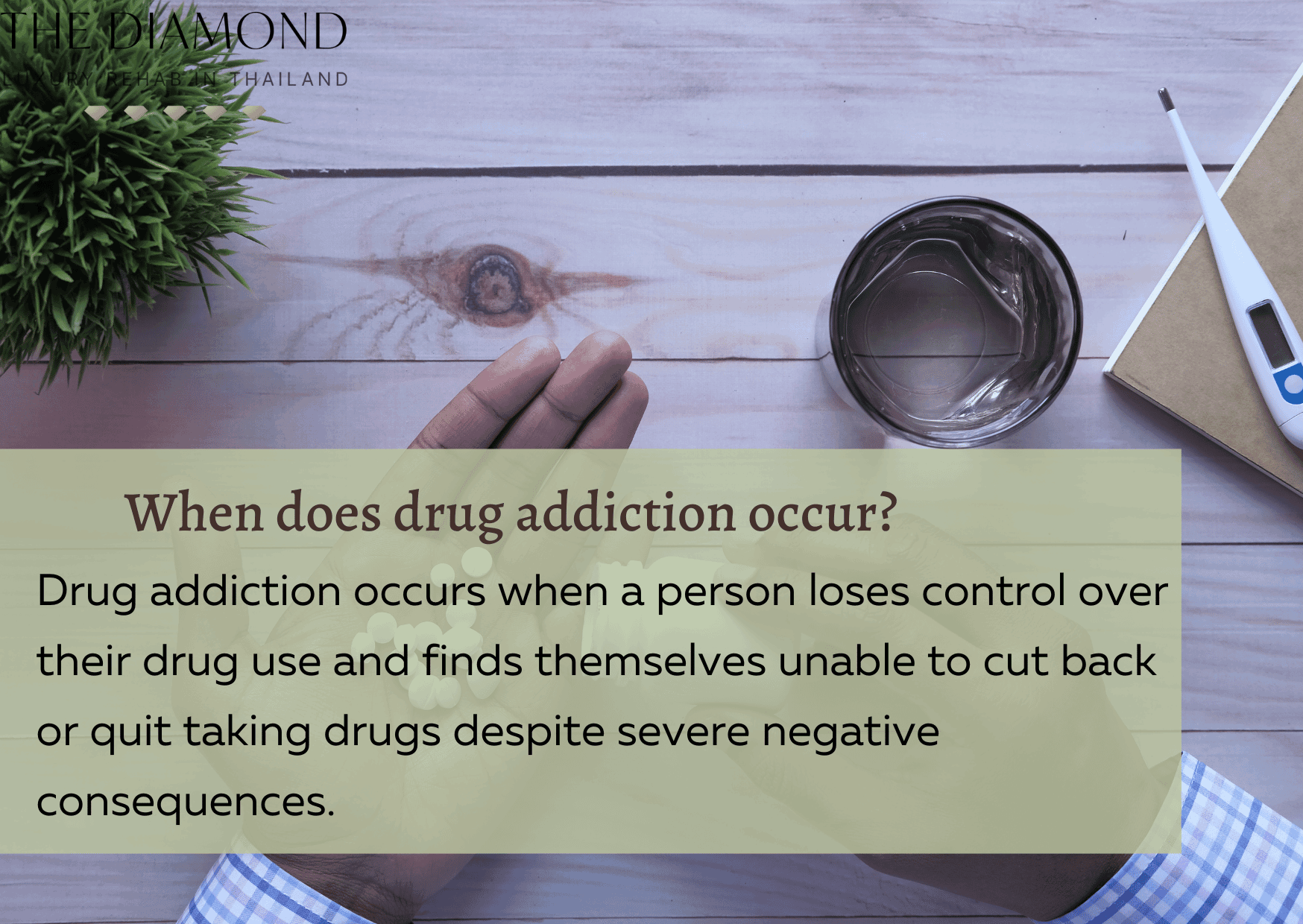
When does drug addiction occur?
Drug addiction occurs when a person loses control over their drug use and finds themselves unable to cut back or quit taking drugs despite severe negative consequences. There are four stages of drug addiction – experimentation, regular use, risky or problem use, and drug addiction and dependence.
This means that drug addiction does not develop overnight. Instead, it occurs gradually for most people. Addiction can cause a person to change their priorities in life and let go of obligations at work, school, and home to support their habit. In addition, to fuel their addiction, people with substance use disorder may end up spending all their money on drugs or may commit stealing offenses motivated by their need to buy more drugs.
What are the risks of drug addiction?
The physical and mental effects of drug abuse can be far-reaching. The risks of drug addiction are listed below.
- Falls and injuries: Individuals who have developed drug tolerance to certain medicines that cause sedation or drowsiness are at risk of sustaining a fall that can result in injuries. Injuries can also occur while under the influence of alcohol and certain drugs, as these substances can impair coordination and balance.
- Seizures: Drugs are primarily known for their adverse effects on the brain. Some of the drugs that can cause seizures include methamphetamine, cocaine, opioids, and marijuana, among several others. Those who are diagnosed with epilepsy, a disorder characterized by repeated seizures, could worsen their condition with drug use.
- Memory loss: Illegal drugs such as PCP, GHB, MDMA, cocaine, and marijuana can cause memory problems in their users. Just as illicit drugs are powerful enough to trigger a chemical imbalance in the brain, they can also cause memory loss that is often irreversible.
- Cardiovascular issues: Most illegal drugs are associated with cardiovascular issues, ranging from abnormal heart rate to stroke and heart attacks. Examples of drugs that can cause health issues for the heart are heroin, cocaine, and various forms of amphetamine.
- Drug-related communicable infectious diseases: Individuals with serious drug problems are at an increased risk of acquiring infectious diseases such as HIV and hepatitis B and C viruses, particularly when they share injecting equipment.
- Depression: Depression is a mental illness that is frequently comorbid with substance abuse. Clinically depressed people may turn to drugs as a form of self-medication. On the other hand, those who abuse substances worsen their negative emotions through drug use.
- Suicide: Individuals who suffer from drug addiction die by suicide more frequently than the general population. The toxic effects of alcohol and drugs can significantly affect mood and judgment, resulting in suicidal thinking and behavior.
- Death due to overdose: Drug overdose death rates are higher in people who take too much of a certain substance or mix different substances for recreational purposes than those who abuse medications and pharmaceuticals. Drug overdose can lead to coma and death.
Other effects of drug addiction include:
- Family problems
- Job loss
- School issues
- Legal trouble
- Financial ruin
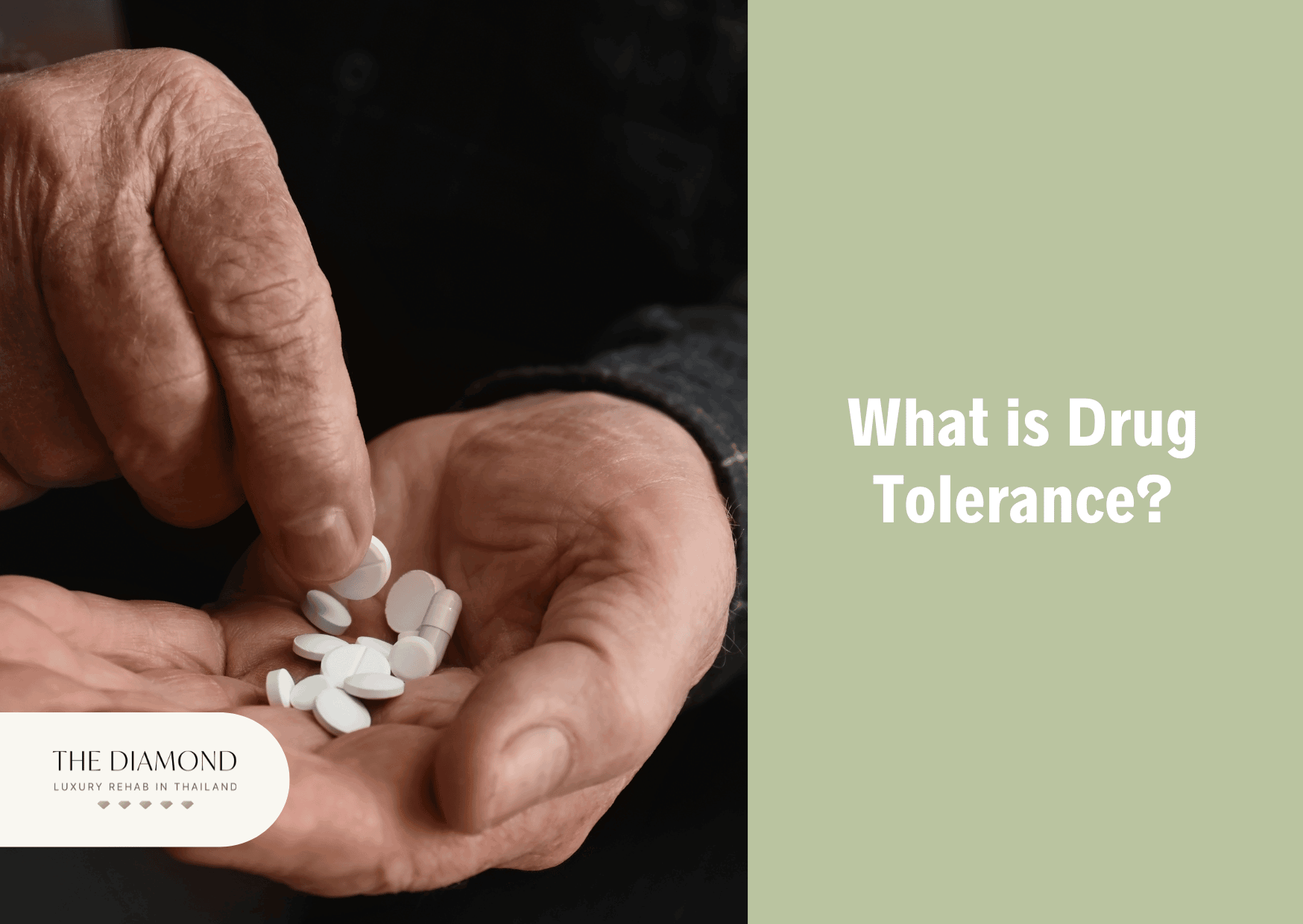
What is drug tolerance?
If you find yourself asking “what is the term for needing more of a drug to get the same high?”, the phenomenon is called drug tolerance. Someone who develops drug tolerance needs larger and larger doses of the drug to achieve the same effects as before.
Tolerance is an individual’s diminished reaction to a drug, which can also result in a plethora of negative consequences. Although people who develop drug tolerance do not always become addicted, the former can be a warning sign of addiction and could be a cause for concern.
When does drug tolerance occur?
Drug tolerance occurs when someone has been taking a certain drug over a long period. Due to repeated or prolonged exposure to the drug, the body gets so used to its presence that it becomes less effective over time.
This leads people who develop tolerance to require more and more of that drug to experience the same effects they have been accustomed to. This cycle of increasing use can become dangerous when it develops into a full-blown addiction.
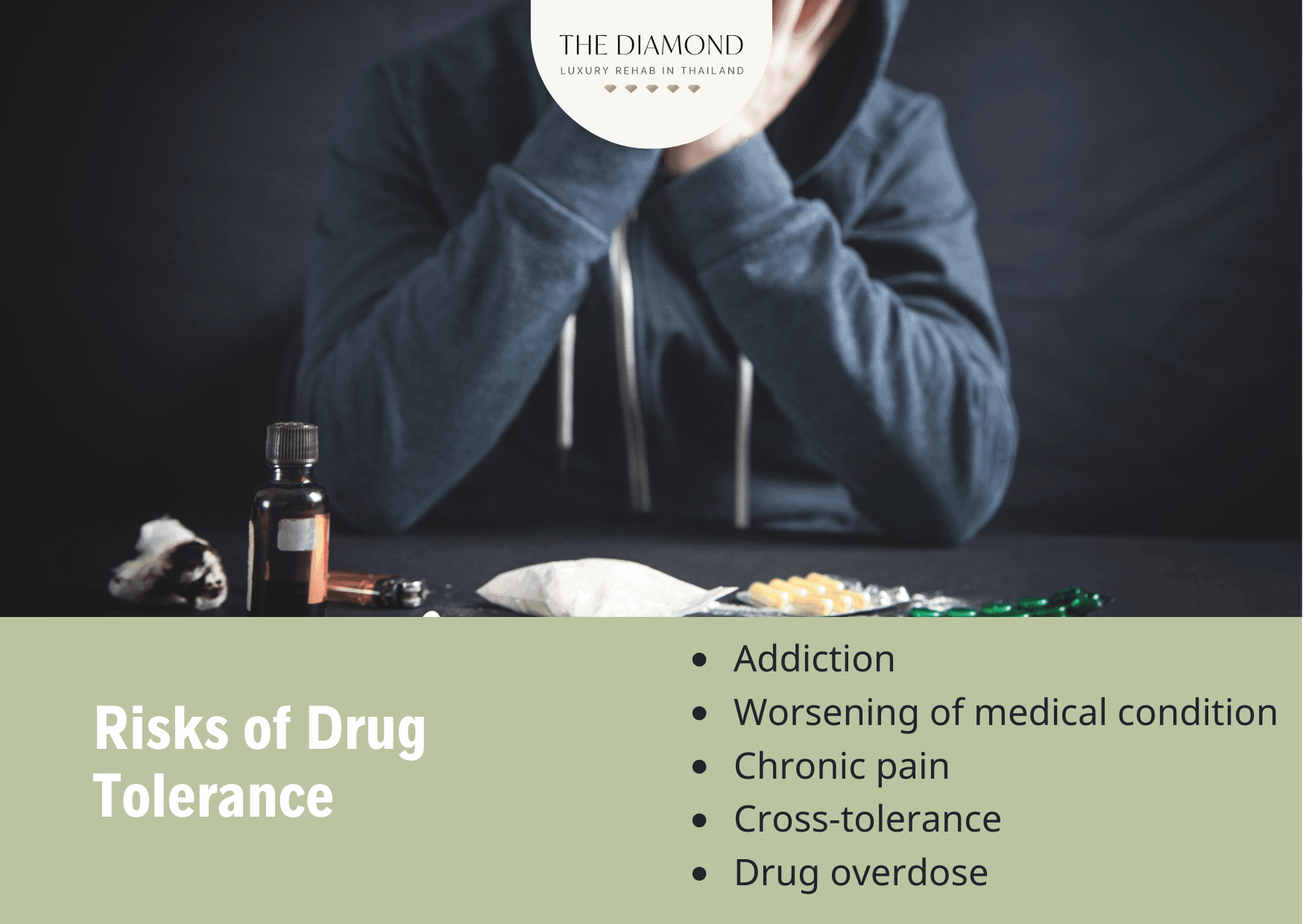
What are the risks of drug tolerance?
Tolerance can be dangerous for several reasons. The risks of drug tolerance are listed below.
- Addiction: Whether one develops tolerance to an illicit or medically prescribed drug, the mere misuse of the substance could eventually lead to abuse, making the afflicted individual vulnerable to addiction.
- Worsening of medical condition: One of the major risks associated with drug tolerance is that because the person now feels less of the medication’s effect, the condition for which they have taken the drug may worsen.
- Chronic pain: Over time, people often build up a tolerance to pain medication. One of the reasons for the ongoing opioid epidemic in the United States is the high potential for abuse of opioid painkillers. Taking too many opioid pain medications can cause tolerance to develop at a faster rate, which can exacerbate chronic pain.
- Cross-tolerance: Cross-tolerance occurs when tolerance to a certain drug leads to tolerance to the effects of other closely related drugs. The majority of cases of cross-tolerance involve drugs in the same class that act on the same areas of the body.
- Drug overdose: The cycle of increasing dosage and taking excessive amounts of the drug can lead to a heightened risk of overdose. At times, tolerance also plays a role in eventual dependence on a substance. Drug dependence definition is the feeling of being unable to normally function in the absence of a certain drug.
Other effects of drug tolerance include:
- Mental health illnesses
- Physical or psychological dependence
- Immune-related conditions
- Drug-induced seizures
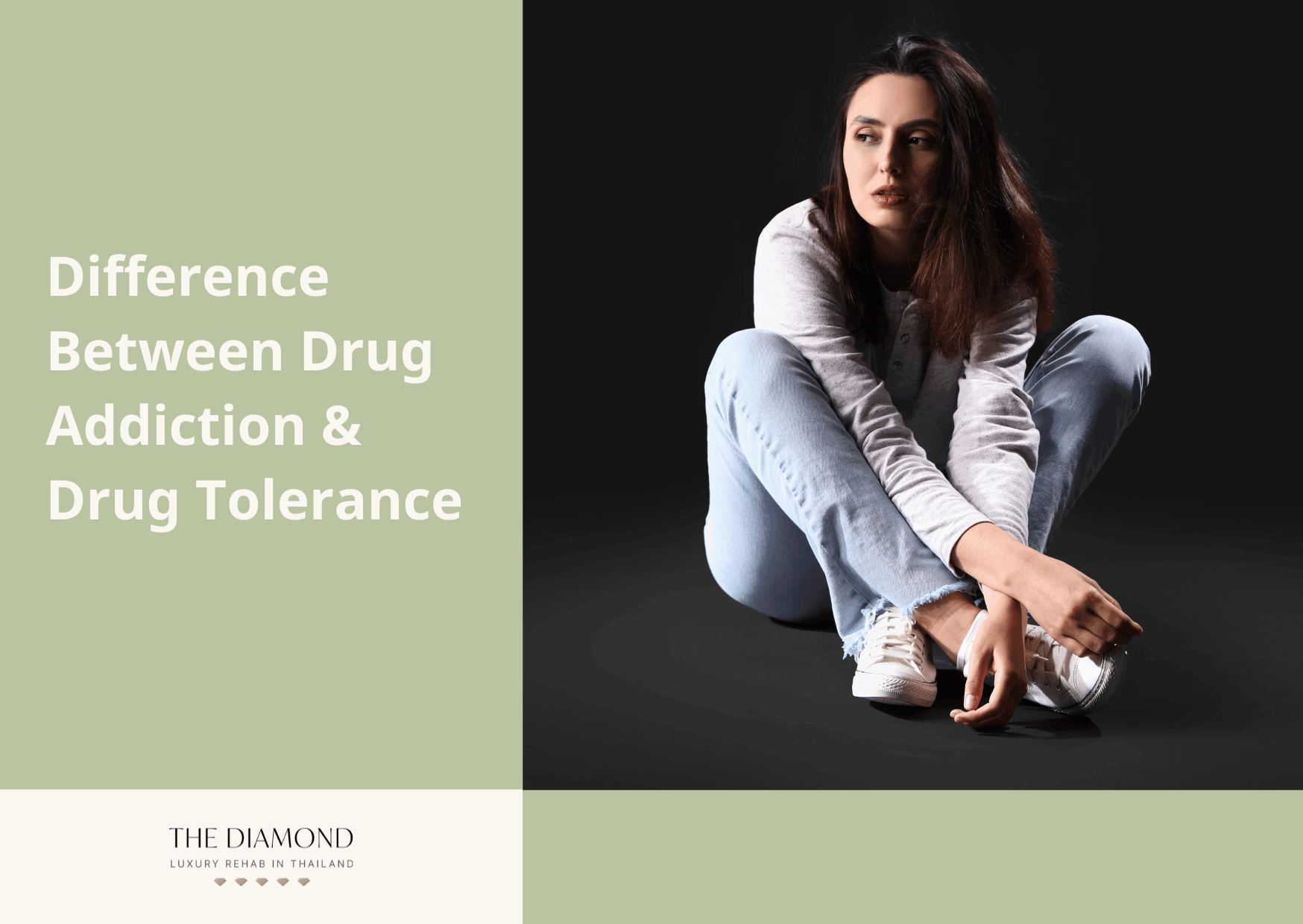
What is the difference between drug addiction and drug tolerance?
The difference between drug addiction and drug tolerance is that drug addiction is a complex disease that affects the brain, while drug tolerance is an issue that naturally develops following repeated or prolonged use of a certain drug. Drug tolerance definition is the body’s reduced reaction to the chemicals of a drug after their presence in the body’s system for an extended period.
And while both addiction and tolerance have negative consequences, worsening of tolerance may be prevented by changing the class of prescription medication taken by an individual. Meanwhile, treating addiction can be challenging, as substance use disorder significantly alters a sufferer’s brain, making it impossible for those with the condition to resist the urge to take drugs.
Drug addiction also creates conflicts in many parts of a person’s life, which do not simply go away even after recovery. Quitting drugs is a complicated process, but the right mindset and a treatment program that is tailored to the patient’s specific needs will pave the way for recovery.
